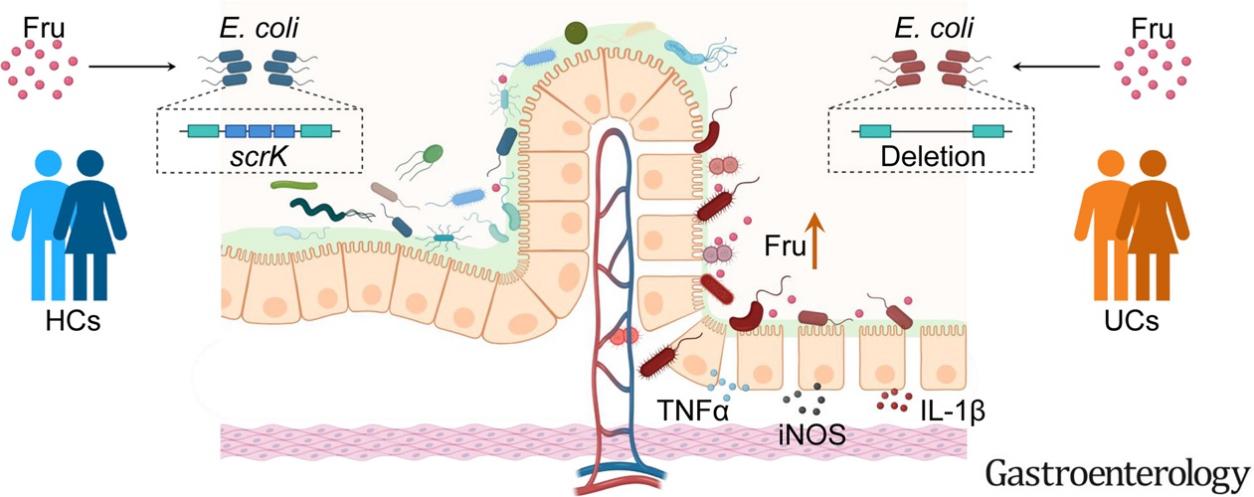A research team led by Professor Faming Zhang from the Second Affiliated Hospital of Nanjing Medical University, in collaboration with the Institute of Microbiology at the Chinese Academy of Sciences, has published a groundbreaking study in Gastroenterology titled "Structural Variations in Ulcerative Colitis-Associated E. coli Reduce Fructose Utilization and Aggravate Inflammation Under High-Fructose Diet."

The study reveals that structural variations (SVs) in Escherichia coli (E. coli) strains associated with ulcerative colitis (UC) reduce the bacteria’s ability to metabolize fructose. Under a high-fructose diet, these variations exacerbate intestinal inflammation and impair gut barrier integrity.
Using long- and short-read metagenomic sequencing on stool samples from UC patients and healthy controls, the team identified large deletions in key fructose metabolism genes, particularly scrK, in E. coli strains isolated from UC patients. Analysis of 648 E. coli strains confirmed that such deletions were significantly more frequent in UC-associated strains.Further in vitro and in vivo experiments: including mouse models and gene-edited E. coli strains, demonstrated that loss of scrK impairs fructose metabolism and increases colitis severity. The findings highlight the critical role of strain-specific genetic variations in shaping bacterial function and disease progression.This study introduces a new paradigm: functional divergence within the same microbial species can result from structural genetic variation, offering deeper insight into the pathogenesis of inflammatory bowel disease. The findings also provide a scientific basis for improved diagnosis and treatment of refractory diarrhea and inflammation-related gut disorders.

Professor Faming Zhang of the Second Affiliated Hospital of Nanjing Medical University and Professor Jun Wang of the Chinese Academy of Sciences served as co-corresponding authors. Dr. Xia Wu (Department of Microbiota Medicine & Medical Center for Digestive Diseases, The Second Affiliated Hospital of Nanjing Medical University) and Dr. Yuejuan Li (Institute of Microbiology, Chinese Academy of Sciences) are co-first authors. The study was supported by China’s National Key Research and Development Program and other grants.
Professor Zhang’s team is internationally recognized for its work in microbiota medicine, with contributions that have shaped global guidelines and standards, and have been published in leading journals such as Cell Metabolism, Gastroenterology, Engineering and Protein & Cell.
Link to the article:
https://www.gastrojournal.org/article/S0016-5085(25)00635-3/abstract
(Drafted by Professor Zhang Faming’s Research Group; Reviewed by Shen Baixin and Wang Jieyun; Translation revised by Wu Wenbo)



